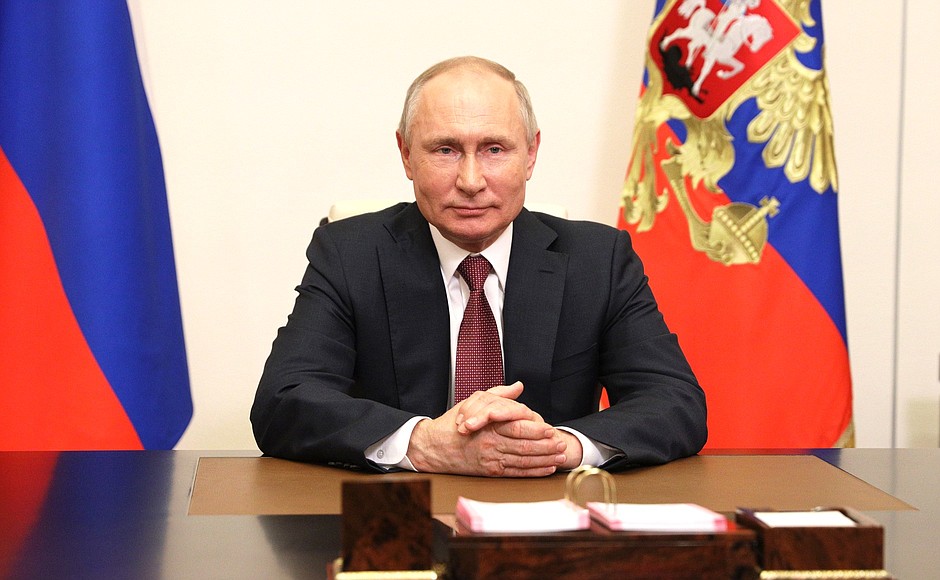
President of Russia Vladimir Putin: Friends,
It is a pleasure to have this opportunity to address the Russian and foreign participants in this conference, Paediatric Oncology, Haematology and Immunology in the 21st Century: From Science to Practice.
I am fully aware that you are dealing with literally vital matters.
This conference has brought together specialists from many countries at the Dmitry Rogachev National Research Centre. This is one of the world’s largest paediatric oncology and haematology clinics. Thousands of children with these serious diseases are receiving effective, high-tech medical treatment here.
This unique centre opened 10 years ago. This is a very personal story for me, because my meeting with Dima Rogachev, a boy who was unusually generous and cheerful despite his serious disease, led to the immediate decision to establish a paediatric oncology clinic.
We were indeed aware of the need to establish such a centre with cutting-edge technology in Russia. But my meeting with the team of empathic doctors and their patient, Dima, greatly accelerated the process. We built the centre jointly with our German and other foreign partners, stocked it with the equipment necessary for treatment and research and named it after the boy whose dream we have implemented.
It is notable that the clinic continues developing and improving. Thanks to the rehabilitation system established here, over 2,500 children receive follow-up care every year.
I would like to note that the centre’s specialists provide assistance to their colleagues in all regions of Russia, consulting them in serious cases and systematically introducing the most advanced treatment methods in Russian clinics. They are also creating modern technologies not only for the effective treatment of these diseases but also for preventing them before it is too late. These technologies are based on the research conducted at the centre and on the latest scientific achievements, including in molecular biology and genetics. It would be no exaggeration to say that we are talking about real medicine of the future, which is becoming a reality at the Rogachev Centre.
I would like to extend my sincere gratitude to all the staff at the centre for their high professionalism, kindness and generosity, for saving lives and creating an atmosphere of hope through their practical daily work and achievements, as well as for each individual victory over this dreadful disease. I know that your slogan is “Every child must get well,” and that you are doing everything possible and more towards this end. You have not stopped working but continued to provide assistance to gravely ill children even during the most difficult and challenging periods of the coronavirus pandemic.
It should be noted that during the past years we have dramatically improved and readjusted the entire system of providing medical assistance to children with oncologic and haematology diseases, and have also greatly expanded the use of advanced technologies at the centre.
During the past four years, the volume of high-tech medical assistance in paediatric oncology has increased by over 30 percent throughout Russia. In particular, the number of complicated and truly unique procedures such as bone marrow transplants has increased: 667 such procedures were performed last year alone.
Russian specialists restore the health of nearly 80 percent of their small oncology and haematology patients, and the figure is as high as 90 percent for certain other diseases. This is a great and very important achievement, which the UN and the World Health Organisation have taken note of.
Only 5 percent of children recovered from acute leukaemia back in 1991, while the current figure is 90 percent, as I have mentioned.
Of course, we will continue working to improve the system of medical care in this area and to introduce new approaches in diagnostics and treatment. In particular, next year the Rogachev Centre plans to complete the nuclear medicine building, and by 2024 we will open paediatric oncology and haematology centres in several Russian cities, specifically Voronezh, Kazan, Ufa, Rostov-on-Don and Krasnodar, so that every child who is diagnosed with this dangerous disease can receive high-tech quality assistance in full and as soon as possible. Saving the lives and health of our children, and hence the future of the country depends on this.
Another vital goal is to make the truly revolutionary achievements in medical research in Russia and abroad work for the people, and to use them increasingly more in the area of paediatric oncology, haematology and immunology.
I know that you will be discussing these complicated scientific and practical matters at your conference.
I would like to wish you every success and to thank you for your devotion to duty. I have no doubt that your selfless work and your warm and caring attitude towards the children will be instrumental in helping them overcome their diseases.
I wish you every success, good health and all the very best.